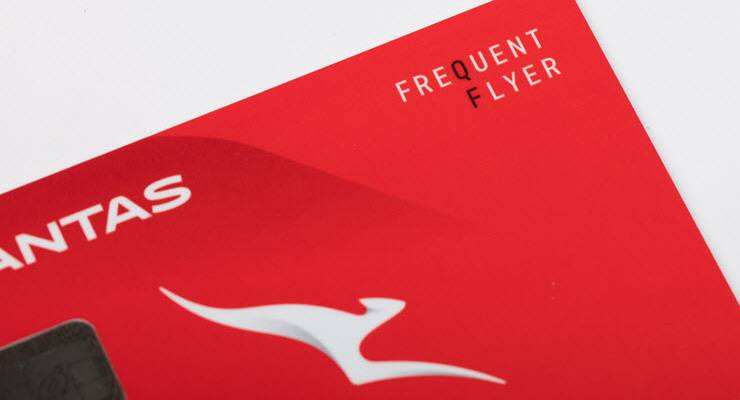
How good is the ACCC? Seriously. Australia’s consumer watchdog is vital in stopping big business from walking all over us, and recently they’ve been pretty proactive.
This time the ACCC has self-initiated a big review into consumer loyalty schemes — things like Qantas Frequent Flyer, Flybuys, Woolworth Rewards, and the rest. These schemes are massive. They’re highly profitable. They can make Australian consumers very cross. And they’re completely opaque to most users.
The loyalty boom
Qantas Frequent Flyer is the biggest loyalty scheme in Australia, with 12.9 million members. It’s a shining light in the Qantas annual report; clocking up $374 million in earnings, on a fat margin of 22%. That’s more than Qantas makes from Jetstar ($370 million on a 9% margin), or from flying internationally ($285 million on 4% margin).
Qantas Frequent Flyer is the loyalty scheme the rest aspire to be. But what’s the problem?
A lack of clarity about terms and conditions is the major way in which loyalty schemes piss Australians off. The ACCC has collected lots of complaints about points expiring, about having to pay to redeem points, about people furious their ability to earn points has been diminished, etc.
The ACCC estimates that the Frequent Flyer terms and conditions would take one hour and 43 minutes to read; a length they asses as “difficult to read”.
People feel powerless in the face of these loyalty schemes, which both issue points and redeem them. They’re like a central bank that can devalue the currency at any time, and they also set the prices of goods in the loyalty economy.
Their owners are aware of this power. When Wesfarmers spun off Coles supermarket into its own entity last year, it was making a future-focused strategic divestment. No surprise there — it’s hard to run a supermarket at a fat profit with Aldi nipping at your heels and more competition coming soon. What was notable was what Wesfarmers didn’t give up. It retained a 50% stake in the Flybuys scheme.
Data is the oil of the 21st century
Where the ACCC hasn’t collected so many complaints is, paradoxically, where the biggest issues might lie. We just can’t see what these loyalty schemes are doing with our data.
The ACCC’s report goes deep on privacy issues. “There is no way for a consumer reading a loyalty scheme’s terms of use or privacy policy to know what entities may access their data, on what terms and for what purposes if they join a loyalty scheme,” it says.
Did you know that Qantas runs a marketing company called Red Planet that uses the knowledge it obtains from the Frequent Flyer program to sell marketing insights? Clients of Red Planet include major banks and major retailers. Dymocks has used their services to sell more books.
The extent of information that can be obtained by combining data from one loyalty scheme with data from elsewhere is startling. As the ACCC says:
- “Using cookies, some loyalty schemes can track different websites that a member visits to better understand what products and services they are interested in,” and
- “Data brokers, such as Quantium, Acxiom, Experian and Lexer, have highly detailed profiles on billions of individuals, comprising age, race, sex, weight, height, marital status, education level, politics, shopping habits, health issues, holiday plans, social media posts, income and more. They may provide database tools to some loyalty schemes to help them improve their member profiling, segmentation, or provide the data directly to a loyalty scheme to be matched against existing member profiles,” and
- “Even in the case where members no longer present their loyalty cards … some supermarket loyalty schemes continue to track the purchasing behaviour and transaction activities of members through the debit and credit cards that the schemes have linked to the member.”
The ACCC has demanded an end to that final practice. But for many of us, huge troves of data on our behaviour already exist, one hack away from being public. As online privacy becomes a larger and larger issue, generating new data will become more costly, and this existing data will be even more valuable to the companies that hold it.
Loyalty implies a two-way street, but these schemes have been getting far more than they’ve been giving.
Do you think frequent flyer programs are a racket? Write to boss@crikey.com.au with your comments and your full name.








I’m curious to know what earnings are generated by the Qantas Club (linked to Frequent Flyer) for which the punters cough up a hefty annual fee for the privilege of providing their data.
I’ve never had any FFP or loyalty programme cards BUT I always pay cash at the supermarket instead of using a credit card.
Is this some sort of protection against data collection or are we kidding ourselves?
We all have to pay our bills and most of the time even if we use say PayPal we’re vulnerable.
The butcher, the baker, the candle stick maker throve in the past on knowing the preferences of their customers.
Welcome to the 21stC where that knowledge is of value to 3rd parties to enable more accurate placement, advertising and customer manipulation.